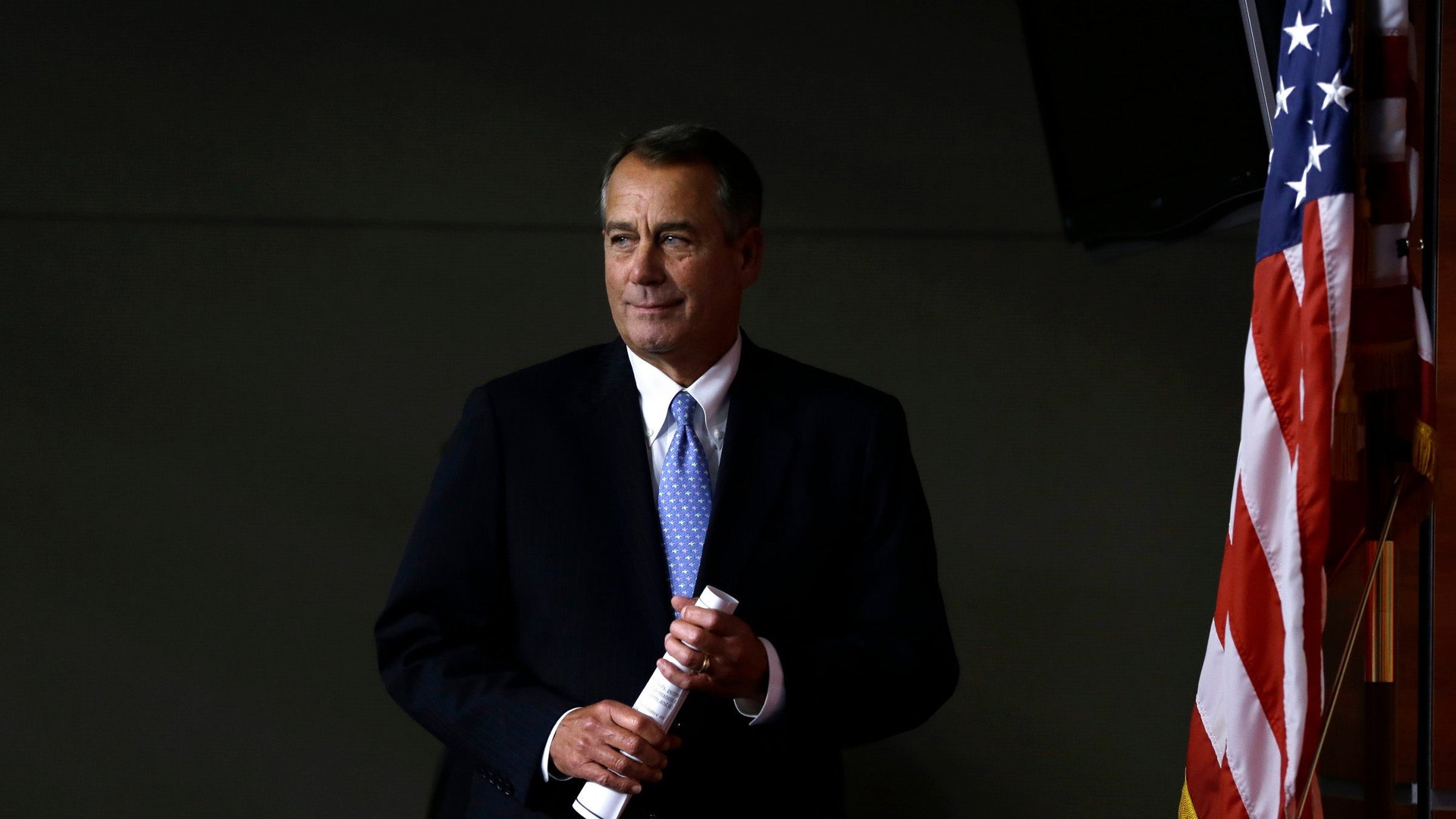Boehner’s tough choice could determine the fate of the fiscal cliff
So much for Plan B.


So much for Plan B.
Republican Speaker of the House John Boehner tried to box President Barack Obama into a corner by passing legislation known to raise tax rates on those making $1 million a year or more, cut spending on a variety of programs conservatives dislike and stop scheduled cuts in defense funding. Despite hours of personal vote hunting for the so-called Plan B, he was forced to pull the bill from the floor after conservatives balked at raising tax rates and Democrats declined to make up the difference, in perhaps his darkest moment as Speaker.
Now Boehner faces a tough choice. Does he work with President Obama to erase the relatively minor differences between their fiscal proposals, which stabilize the US debt over 10 years by raising tax rates on the wealthy, cut social insurance and healthcare spending, and perhaps kick in a little stimulus—or does he continue to push for a deal that sharply limits tax increases?
While a the bargain would pass both the House and Senate with the backing of Democrats and moderate Republicans, alleviating the pain of the fiscal cliff, such a bill could put Boehner’s standing as Speaker in jeopardy. It’s clear that conservatives in his caucus don’t want this deal, though it’s not clear whether a majority of Republicans would push for new leadership in January if he took it.
On the other hand, further brinksmanship might end the chances of a deal before the Jan. 1 austerity trigger, and without the passage of any Republican legislation to avoid the cliff, a public backlash would likely be focused on Republicans. President Obama continues to outpoll Republicans in this debate, and raising taxes on high income earners is broadly popular in the country.
It’s a tough choice for Boehner, between continuing the outright opposition that has marked his party during the Obama administration or seeking to return to the pragmatic deal-making that defined a previous generation of American politicians, highlighted by the chummy relationship of President Ronald Reagan and Democratic Speaker Tip O’Neill. That era is idealized in Washington, but may not be suited to the times.
Boehner has said it’s now up to Democratic Senate Majority Leader Harry Reid and President Obama to resolve the fiscal cliff impasse, and it’s not clear whether the House will return to session before the new year. It is undeniable that the United States is now closer to a recession of its own choice. A brief trip over the fiscal cliff won’t damage the US economy immediately, but without compromise—Plan C?—the pain of austerity, and a dangerous showdown over the US debt limit, looms.